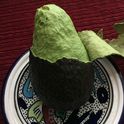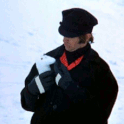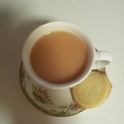Best Pizza Dough Recipe
I have tried MANY different pizza dough recipes from thin crust, to Chicago style deep dish (excellent), but still haven't come across a recipe that gives me that New York thin perfection crust. Any suggestions?
30 Comments
BerryBabyJune 20, 2016
Loving all your suggestions, comments and know-how on pizza crust. I have many new options to try! I'm leaning toward the 'no knead' crusts as I have weak wrists. I do have a Kitchen Aide mixer and I see suggestions for using it to do the work. I'll report back as soon as I can eat! Had the oral surgery this past Thursday. I'm CRAVING pizza!
PHILJune 20, 2016
I made some quick pizza yesterday using Stonefire pizza crusts and they were great , the family wiped them out.. The company make good Naan too. I made a few with prosciutto , fig spread, smoked mozzarella and caramelized onions , and some with fresh ricotta, olive oil, garlic and sliced tomato. Sometimes making the dough is not worth all of the effort. I'd rather put the work into the toppings.
BerryBabyJune 20, 2016
To me, the crust is THE factor in good pizza. Just like a deli sandwich, it has to be on a good, fresh bakery chewy roll. That makes all the difference IMO.
SmaugJune 21, 2016
It takes some time to make a pizza crust, but very little actual effort- there's probably less than 5 min actual work involved, including cleaning up.
ChefJuneJune 20, 2016
I know lots of folks have given you their "best ever" recipe, but I have to take exception here... I taught a Pizza and Calzone class at the Boston Center for Adult Education every two months for 10 years, and this recipe for pizza dough is hands down the best one I've ever found. You can also use it to make dinner rolls, focaccia, and more. I promise you won't be sorry you tried it. https://food52.com/recipes...
pierinoJune 20, 2016
ChefJune, your dough is not dissimilar to mine. But it's what happens next that makes it pizza. The oven has to be as hot as you can possibly get it. Unfortunately home ovens don't get above 500F whereas 600F or higher is most desirable. That's why I use a wood burning grill that I can close up when I can. Neapolitans judge pizza by the cornice or the outer crust, which if you've done it right will have burnt blisters which have popped open. The toppings are minimal. Adding pineapple would be considered an atrocity in Napoli. Pizza there holds the same status as tagliatelle Bolognese does in Emilia--Romagna.
SmaugJune 21, 2016
Most home ovens I've used get to at least 550 degrees- still pretty low, but better. They can sometimes be pushed farther by using the broil setting, but that starts getting a little tricky- depends on the oven.
PHILJune 20, 2016
I feel the oven is critical. I use an insert fro my BBQ that gets super hot. My friend has an outdoor pizza oven that cooks the pie in under 2 minutes. Cooking on a pizza stone is also a good option if you are cooking inside but it is hard to get that searing heat that you need for good pizza. If you want a thick Sicilian crust, all NY pizzerias pre-cook the crust first then top it. If you are using an oven I would try cooking the pie without toppings to get the desired crispness then take out a top it and run it under the broiler to get a nice melt with the burnt cheese bubbles.
pierinoJune 19, 2016
I'm a purist when it comes to pizza. This is my recipe based on the Neapolitan model which is what all authentic pizza owes its origin to https://food52.com/recipes.... It's very important to crank your oven as high as it will go. Even better if you have a pizza stone or piastra do it outside over a wood fire.
"Deep dish" isn't pizza it's a casserole. Even in Chicago, its birthplace, it is typically scorned and considered an embarrassment to the city.
"Deep dish" isn't pizza it's a casserole. Even in Chicago, its birthplace, it is typically scorned and considered an embarrassment to the city.
Voted the Best Reply!
BerryBabyJune 19, 2016
Thanks, pierino! I'll check it out and give it a try. I was born and raised in Chicago and never heard anything like that about deep dish. They have always made a great thin crust that we loved as kids. Then, in the late 60's had my first deep dish at Uno's and loved it. I enjoy both :) !
pierinoJune 19, 2016
I've spent a lot of time in Chicago and believe me if you bring up deep dish to real pizza junkies they will all tell you "That's NOT Chicago pizza!!" Like NYC to which it's a cousin, Chicago style is thin crust and it's often sold by the slice.
AlexHNovember 30, 2017
I live in Chicago and that couldn't be further from the truth. It's beloved.
NancyJune 19, 2016
BerryBaby - Maybe you can find salvation in technique, not ingredients. Try using a pasta roller to make a very thin dough (almost as if you were making crackers), proof, garnish, bake and taste...
BerryBabyJune 19, 2016
Thank you, Nancy! Recall as a child being taught by my Sicilian aunt that rolling pizza crust made it tough. Stretching the dough and giving it a toss was her method and guess that's what I still do. Anyone have input rolling versus stretching?
pierinoJune 19, 2016
My dough is very elastic which gives it a nice cornice with burnt blisters on the outside. I begin by rolling it just to get an even , round shape and then finish it by hand.
Susan W.June 19, 2016
This was a great thread from a year ago started by Daniel. Several people posted links to recipes that work for thin or thick crusts.
https://food52.com/hotline...
If you don't find what you're looking for, a search for "pizza dough" choosing "hot line" brings up many conversations. I'd also use Google and add Serious Eats to see what comes up. I'll bet Kenji or someone else has a NY style crust on that site.
https://food52.com/hotline...
If you don't find what you're looking for, a search for "pizza dough" choosing "hot line" brings up many conversations. I'd also use Google and add Serious Eats to see what comes up. I'll bet Kenji or someone else has a NY style crust on that site.
BerryBabyJune 19, 2016
Thank you, SusanW! Yes, I viewed the other conversations before posting and have searched the Internet using recipes I find. However, I thought maybe there might be a new member or someone who found a great recipe that they could share since the post last year. Always open to hearing new ideas and I appreciate your suggestions!
702551June 19, 2016
Yup, Kenji did this back in 2012:
http://www.seriouseats...
Worth giving a try; pizza dough ingredients are so cheap.
http://www.seriouseats...
Worth giving a try; pizza dough ingredients are so cheap.
702551June 19, 2016
Curiously, Kenji has written about this in 2010 as well.
http://www.seriouseats...
I'd go for the 2012 recipe. No doubt he has refined the recipe over time.
http://www.seriouseats...
I'd go for the 2012 recipe. No doubt he has refined the recipe over time.
Susan W.June 19, 2016
CV, when I'm curious about a method or ingredient, I always toss Serious Eats in the search field somewhere. That site has yet to disappoint. Internet crush.
702551June 19, 2016
Susan W,
Absolutely!
J. Kenji Lopez-Alt is arguably writing the most well-researched food recipes in American English in our time. As a MIT-trained biologist, he employs scientific methodology far better than anyone else writing for the North American food audience than anyone else.
The only two other sources whom I would consider to be even remotely within his league are Sunset magazine and the New York Times food department.
Absolutely!
J. Kenji Lopez-Alt is arguably writing the most well-researched food recipes in American English in our time. As a MIT-trained biologist, he employs scientific methodology far better than anyone else writing for the North American food audience than anyone else.
The only two other sources whom I would consider to be even remotely within his league are Sunset magazine and the New York Times food department.
pierinoJune 19, 2016
Actually CV, Lucky Peach is in Kenzi's league and in fact a league above. Fred McGee is a regular contributor and they did score some Beard awards. I can't recall Sunset magazine doing that.
702551June 19, 2016
Thanks, pierino, I will check out Lucky Peach.
Sunset is well known for their recipe testing methodology, they've been publishing for something like 120+ years. This is a West Coast periodical, not so it may be unfamiliar with many people outside of the western USA, but they are undeniably solid.
One thing for sure about Kenji is that he has no qualms in questioning the status quo and his research often ends up highlighting best practices and methodology rather than some fancy gimmicky ingredient (example: reverse sear for meats).
Even though I never follow any recipe word-for-word, there are almost always one or two concepts in a Food Lab recipe that are great takeaway points.
One thing that the Food Lab analyses do that most other publications do not do (including NY Times and Sunset) is to recap what happens when you use other ingredients/techniques and their results.
99.99% of recipe authors do not divulge their mistakes.
Sunset is well known for their recipe testing methodology, they've been publishing for something like 120+ years. This is a West Coast periodical, not so it may be unfamiliar with many people outside of the western USA, but they are undeniably solid.
One thing for sure about Kenji is that he has no qualms in questioning the status quo and his research often ends up highlighting best practices and methodology rather than some fancy gimmicky ingredient (example: reverse sear for meats).
Even though I never follow any recipe word-for-word, there are almost always one or two concepts in a Food Lab recipe that are great takeaway points.
One thing that the Food Lab analyses do that most other publications do not do (including NY Times and Sunset) is to recap what happens when you use other ingredients/techniques and their results.
99.99% of recipe authors do not divulge their mistakes.
Susan W.June 19, 2016
Pierino, do you by chance mean Harold Mcgee? Or is Fred someone we need to find out about?
702551June 20, 2016
Harold McGee writes interesting stuff, but he should NOT be considered as any sort of authority.
Someone recently brought up that the second edition of his book states that rice increases 1.6x the water of the dry rice. Worse, the book doesn't even describe exactly what rice this is. It is a sweeping, all-encompassing statement with zero follow up.
I thought that was sketchy so I carefully monitored my last batch of rice (Japanese brown rice). Two cups (310 g) was measured and soaked with water for a total of 900 grams.
I cooked the rice in my electric rice cooker and it was 700 grams after the cooking cycle was done. I left the rice in the cooker overnight and measured it the next morning. Some had evaporated, but it was still 650 grams. That's almost 2.5x the weight of the dry rice.
DO NOT READ MCGEE AS A DEFINITIVE SOURCE.
It is sloppily written and has been since the original edition published in the mid-Eighties. The book should be considered as an inspiration for future research, not as a definitive answer.
Someone recently brought up that the second edition of his book states that rice increases 1.6x the water of the dry rice. Worse, the book doesn't even describe exactly what rice this is. It is a sweeping, all-encompassing statement with zero follow up.
I thought that was sketchy so I carefully monitored my last batch of rice (Japanese brown rice). Two cups (310 g) was measured and soaked with water for a total of 900 grams.
I cooked the rice in my electric rice cooker and it was 700 grams after the cooking cycle was done. I left the rice in the cooker overnight and measured it the next morning. Some had evaporated, but it was still 650 grams. That's almost 2.5x the weight of the dry rice.
DO NOT READ MCGEE AS A DEFINITIVE SOURCE.
It is sloppily written and has been since the original edition published in the mid-Eighties. The book should be considered as an inspiration for future research, not as a definitive answer.
NancyJune 20, 2016
Good point about Kenji Lopez-Alt being one of the few who disclose mistakes, errors, bad results in recipe testing.
ATK/Cook's Country/Cook's Magazine does this too, but often in less detail.
And yes also to Sunset magazine for reliability (saw occasionally even while growing up on the east coast).
ATK/Cook's Country/Cook's Magazine does this too, but often in less detail.
And yes also to Sunset magazine for reliability (saw occasionally even while growing up on the east coast).
keg72June 21, 2016
Kenji used to work for ATK. I agree that both are excellent sources for well-researched recipes. I also appreciate that they explain the "why" and "why not" of things.
Showing 30 out of 30 Comments
Recommended by Food52
Popular on Food52
Continue After Advertisement





